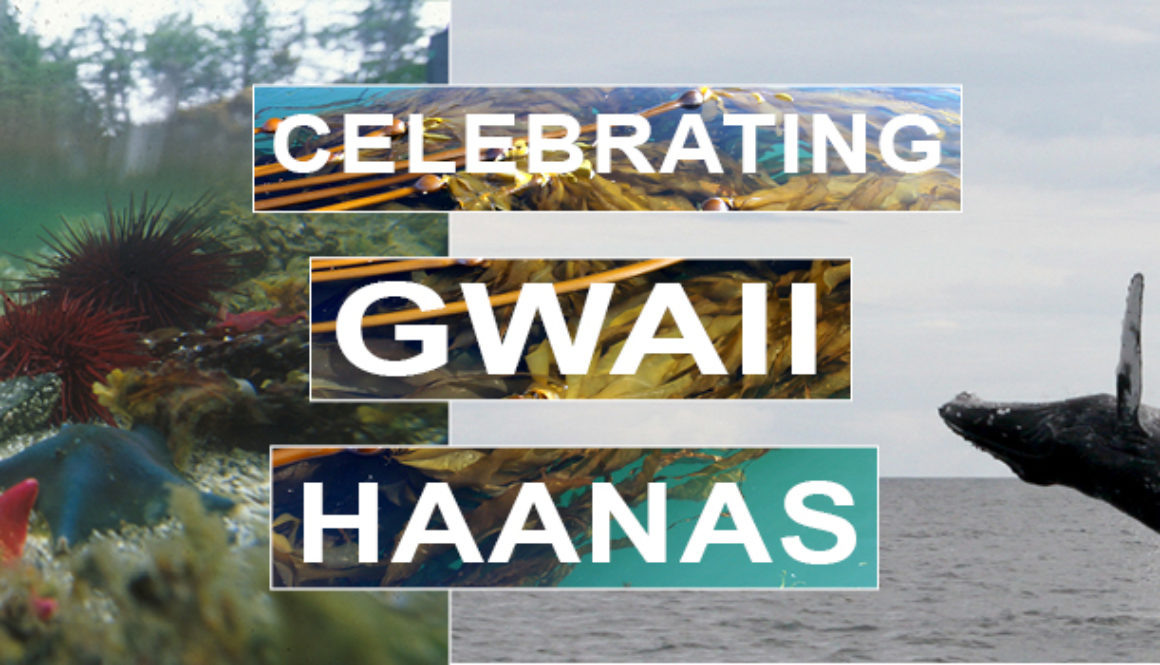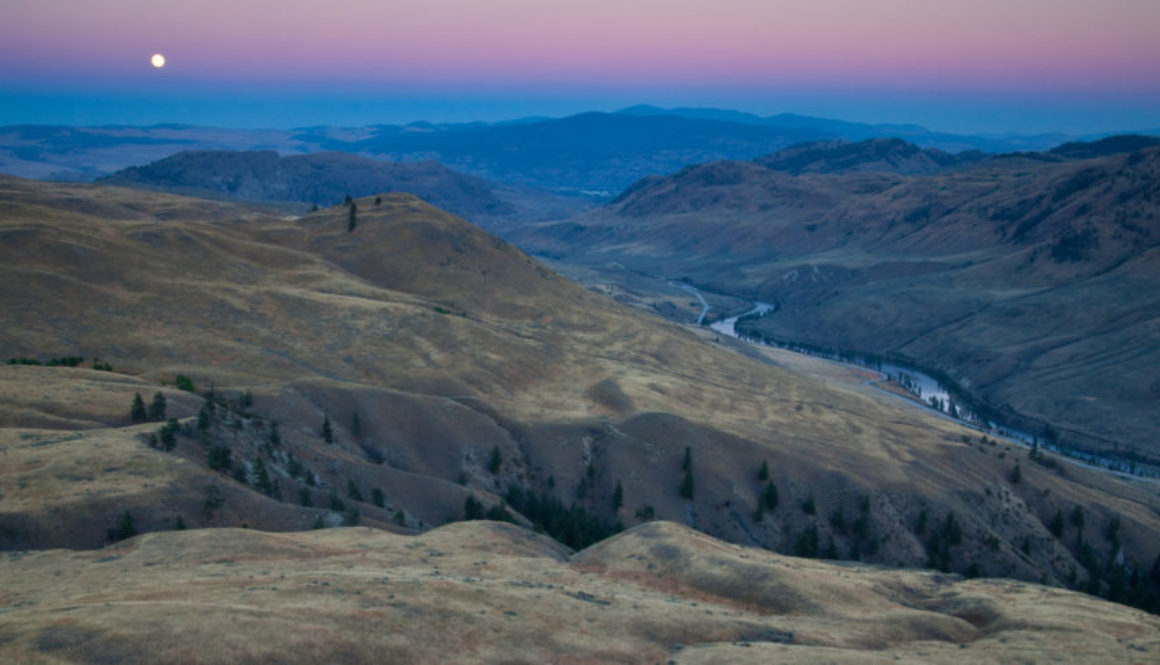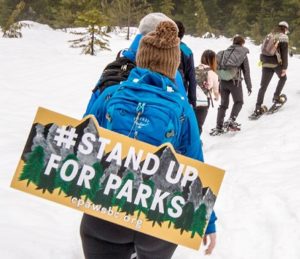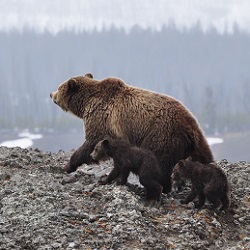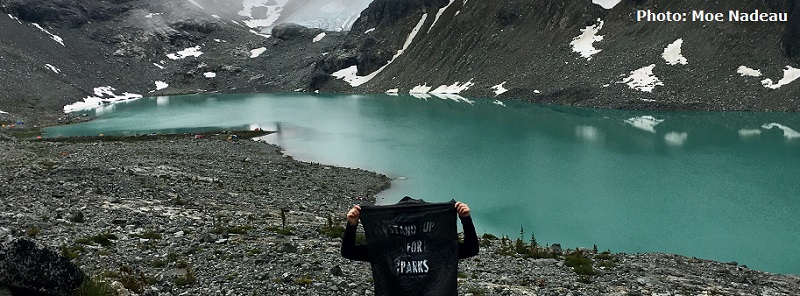Shifting Tides: New Gwaii Haanas Management Plan Brings Together Land, Sea, and People
By Sonia Singh Jind, 28 November 2018
The Gina ‘Waadluxan Kilguhlga Land-Sea-People Management Plan is a landmark step towards cooperative management in Canada. This ten-year management plan signed by the Haida Nation, Parks Canada, and Fisheries and Oceans Canada, is jointly managed through the Archipelago Management Board (AMB).
Traditionally, the Canadian government has managed areas of land and ocean separately, and people’s relationships to the land and sea are not always at the forefront of conservation planning. This new plan is different. Central to the Haida worldview that everything is interconnected, the Land-Sea-People Management Plan integrates the protection of land and sea, while acknowledging people’s well-being and need to make a livelihood. This new integrated and adaptive plan is based on principles of respect, responsibility, interconnectedness, and balance, to name a few. It is regarded as a great achievement and partnership by many.
Gwaii Haanas is a globally renowned ecological and cultural treasure. We have worked with the Haida Nation for more than 25 years to protect Gwaii Haanas and share its stories with Canadians and the world. This important step will help preserve some of the most abundant and unique nature in the world, and protect the cultural heritage of this iconic place.
-Catherine McKenna, Minister of Environment and Climate Change and Minister responsible for Parks Canada
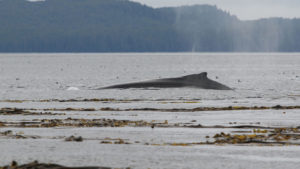
The signing of the new management plan is a landmark step in partnership and conservation that has been decades in the making. Archaeological evidence suggests humans have been living on Haida Gwaii at least 12,000 years, and the Haida have an oral history of their ancestors in Gwaii Haanas dating back to the emergence of some of the most culturally significant islands in Haida Gwaii.
The first step towards official protection of this sacred area was the creation of the Haida Gwaii Watchmen Program in 1981, which was created to protect southern Haida Gwaii from the ecological and cultural consequences of harmful whaling, mining, logging, and fishing activities that had begun since Europeans arrived.
The Haida Watchmen program is a touchstone to our past and future. There are few places left on the planet where one can go to feel that sense of being a part of all things. Gwaii Haanas is one of those places.
-Suudihl (Cindy Boyko), Council of the Haida Nation, AMB co-chair
The archipelago was also recognized for its unique cultural and ecological importance with the designation of SGang Gwaay as a UNESCO World Heritage site in 1981.
In 1985, the Haida Nation continued the movement to protect their lands, leading a logging blockade at Tllga Kun Gwaay.yaay (Lyell Island). Another success came when the area was designated a Haida Heritage Site in the same year.
In 1987 the Government of Canada (formed in 1867) and the province of British Columbia (formed in 1871) designated Gwaii Haanas as a national park reserve and marine protected area in the South Moresby Memorandum of Understanding and Agreement (signed in 1988).
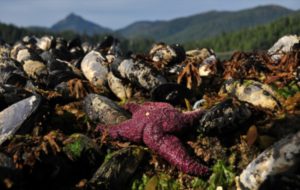
While many positive steps were being made towards the protection of the area, cooperative management between the Government of Canada and the Haida Nation was put into writing in 1993, with the signing of the Gwaii Haanas Agreement and the formation of the Archipelago Management Board which has equal representation from the Haida Nation and the Government of Canada.
Then, in 2010 the Gwaii Haanas Marine Agreement was signed, and Gwaii Haanas was designated as a National Marine Conservation Area Reserve.
Gwaii Haanas is a treasure for wildlife and has great ecological, cultural, and spiritual importance. It contains upwelling areas of cold, nutrient-rich waters and is home to 42 species-at-risk and 20 different species of marine mammals! Black bears, bald eagles, salmon, and a wide variety of seabirds are found on the islands and surrounding waters of Gwaii Haanas. It is also an area of great spiritual importance to the Haida Nation, where spiritual connection is practiced through the use of traditional foods and medicinal plants.
It was common to us, just to see…thousands and thousands of tonnes of herring – big spawns, as far as you can see…and then the sea lions and the killer whales…you hear…sea lions roaring all night…
-Gidaansda (Percy Williams)
At approximately 3,466 km2, The National Marine Conservation Area Reserve contributes to about 0.06 percent of Canada’s conservation target to protect 10 percent of coastal and marine waters by 2020. However, it should be noted that only 40 percent or 106.2 km2 of the total marine protected area in Gwaii Haanas is strictly protected from commercial and recreational fishing.
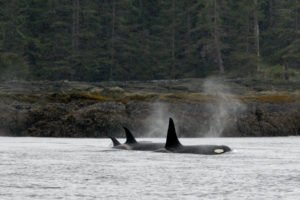
The Canadian Parks and Wilderness Society – BC Chapter (CPAWS-BC) played an important advisory role on improving the zoning plan for Gwaii Haanas which originally protected just 3 percent of the marine area. CPAWS-BC strongly recommended a substantial percent increase to ensure effective protection. Taking heed of recommendations from the ENGO sector, including CPAWS-BC and other leading environmental organizations, the zoning plan was revised to protect 40 percent of the marine area from impactful human activities. Quite an achievement!
For more information on how CPAWS-BC was involved in protecting Gwaii Haanas, visit the CPAWS-BC website. To view the Gina ‘Waadluxan KilGuhlGa Land-Sea-People Management Plan check out the Haida Nation website and Parks Canada website.

